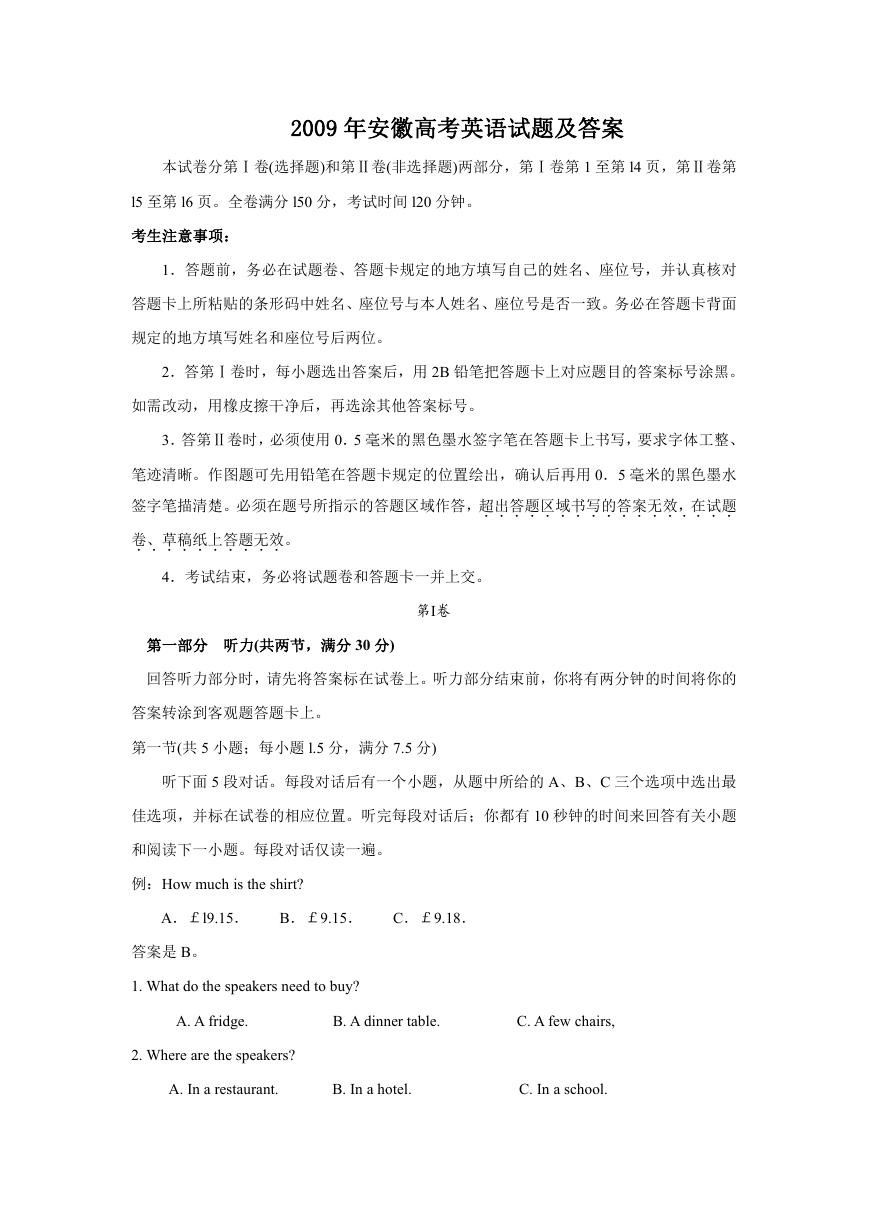4.考试结束,务必将试题卷和答题卡一并上交。
1. What do the speakers need to buy?
2. Where are the speakers?
3. What does the woman mean?
4. Why does the woman plan to go to town?
5. What is the woman trying to do?
6. What is the man doing?
7. What is the woman's seat number?
8.Why doesn’t the woman take the green T-shirt?
9.What does the woman buy in the end?
A.London.B.Arnside.C Lancaster
14.What surprises the girl at school?
C.She was leaving for Greece.
24. -- Do you think it's a good idea to make frien
25. Just as Professor Scotti often it, su
26. -- Could you be so kind as to close the window
A
Recite and repeat in conversation.
Ask the other person to recite and repeat.
Admit you don’t know.
Use associations.
Limit the number of new names you learn at on
Go early.
56. How will most people feel when you try hard to
57. If you can't remember someone's name, you may
58. When you meet a group of people, it is better
59. What does the text mainly tell us?
B
60. The words "boats on land" underlined in Paragr
62. Which of the following helps to develop tradit
63. Why does the author write the text?
C
64. Which of the following is true according to th
65. For what purpose are the diving pipes used?
66. From the last paragraph we can learn that __
D
67. What is most likely to be discussed in the par
E
D.reduce the effect of heat from the sun on the
74.It can be inferred from the text that .
D.the level of annual rainfall affects wind patt
















 2023年江西萍乡中考道德与法治真题及答案.doc
2023年江西萍乡中考道德与法治真题及答案.doc 2012年重庆南川中考生物真题及答案.doc
2012年重庆南川中考生物真题及答案.doc 2013年江西师范大学地理学综合及文艺理论基础考研真题.doc
2013年江西师范大学地理学综合及文艺理论基础考研真题.doc 2020年四川甘孜小升初语文真题及答案I卷.doc
2020年四川甘孜小升初语文真题及答案I卷.doc 2020年注册岩土工程师专业基础考试真题及答案.doc
2020年注册岩土工程师专业基础考试真题及答案.doc 2023-2024学年福建省厦门市九年级上学期数学月考试题及答案.doc
2023-2024学年福建省厦门市九年级上学期数学月考试题及答案.doc 2021-2022学年辽宁省沈阳市大东区九年级上学期语文期末试题及答案.doc
2021-2022学年辽宁省沈阳市大东区九年级上学期语文期末试题及答案.doc 2022-2023学年北京东城区初三第一学期物理期末试卷及答案.doc
2022-2023学年北京东城区初三第一学期物理期末试卷及答案.doc 2018上半年江西教师资格初中地理学科知识与教学能力真题及答案.doc
2018上半年江西教师资格初中地理学科知识与教学能力真题及答案.doc 2012年河北国家公务员申论考试真题及答案-省级.doc
2012年河北国家公务员申论考试真题及答案-省级.doc 2020-2021学年江苏省扬州市江都区邵樊片九年级上学期数学第一次质量检测试题及答案.doc
2020-2021学年江苏省扬州市江都区邵樊片九年级上学期数学第一次质量检测试题及答案.doc 2022下半年黑龙江教师资格证中学综合素质真题及答案.doc
2022下半年黑龙江教师资格证中学综合素质真题及答案.doc